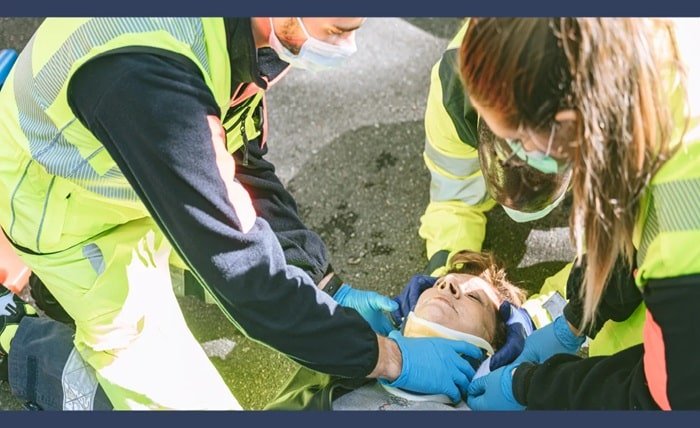The Lasting Impact of Facial Injuries After a Crash

Some car accident injuries are visible the moment they happen—and facial trauma is one of the hardest to ignore. Cuts, fractures, burns, or nerve damage to the face don’t just hurt physically—they change how people see you and how you see yourself. These injuries affect more than just appearance; they impact breathing, eating, speaking, and even mental health. Recovery often means more than stitches—it requires surgery, therapy, and time.
Even low-speed crashes can cause airbags to deploy with explosive force, shattering noses, cheekbones, or jaws on impact. Windshields, steering wheels, or shattered glass can leave behind permanent scars. The face holds dozens of delicate bones, muscles, and nerves, which makes healing complex and painful. It’s not just a cosmetic concern—it’s deeply personal and often life-altering.
The Physical Pain Is Only Part of the Story
Facial trauma is a medical emergency, but it doesn’t end when the bandages come off. Survivors often face long-term complications like chronic jaw pain, sinus issues, vision problems, or dental damage. Some require multiple surgeries, implants, or reconstructive procedures just to regain basic function. These injuries aren’t just about fixing what’s broken—they’re about restoring what was taken away.
The recovery process can stretch for months or years, depending on the severity of the injury. Every meal, mirror, or photograph becomes a reminder of the crash. Pain becomes a daily companion, not just from the wounds but from the procedures meant to fix them. And the longer it takes to heal, the more the emotional toll begins to show.
How These Injuries Affect Confidence and Mental Health
When your face changes, people react differently—and so do you. Victims of facial injuries often describe a deep sense of loss, embarrassment, or shame, especially when scars or disfigurement are permanent. Social anxiety, depression, and isolation are common, even among those who’ve “physically recovered.” What others see as just a scar, victims may see as a stolen identity.
When it counts, the best Las Vegas car accident attorney, Edward M. Bernstein & Associates, Accident and Injury Lawyers, is here to help you fight for compensation. These cases require more than medical records—they need compassionate storytelling that explains the hidden cost of facial trauma. From therapy to reconstructive care, your legal claim should reflect the full picture of what you’ve been through. Because it’s not just your appearance that’s changed—it’s your life.
Why Insurance Companies Often Undervalue Facial Injury Claims
Facial injuries tend to be lumped into general “bodily harm” categories, even when their impact is far more severe. Insurance companies often focus on what’s fixable, ignoring the surgeries, scars, and emotional trauma that follow. A broken nose or fractured orbital bone might be minimized if it doesn’t threaten mobility or life. But anyone who’s lived through it knows better.
These injuries can prevent someone from working in customer-facing roles, returning to social life, or even feeling comfortable outside their home. The value of these losses can’t be measured with a receipt or a scan—they require context and advocacy. That’s why having a strong legal team matters. They make sure your injury is not dismissed as “just cosmetic” but recognized for what it truly is—life-changing.
When Children Suffer Facial Injuries in Car Accidents
Facial trauma in children can be especially devastating—not just because of the physical pain but because their faces are still developing. Injuries to growing bones, teeth, or soft tissue can affect how their features form over time. A broken jaw or fractured cheekbone may require multiple surgeries as the child grows, and each procedure carries its own risks and emotional toll. Even minor scarring can lead to bullying or self-esteem issues that linger into adulthood.
Parents often struggle to know how to support their child through both recovery and emotional healing. It’s not just about medical bills—it’s about therapy, long-term care, and the impact on the child’s future. These cases need to be handled with special care, especially when calculating damages that consider growth-related complications. Every child deserves the chance to heal fully—not just physically, but emotionally and socially, too.
Treatment Isn’t Always One-and-Done
Facial injuries often require a series of interventions over time. Reconstructive surgery may be followed by skin grafts, dental reconstruction, physical therapy, and even counseling. Healing isn’t just about restoring form—it’s about restoring function and dignity. And because scar tissue forms differently on every person, the path forward is rarely predictable.
Some treatments fail and need to be redone. Others require years of monitoring as bones shift or hardware ages. Insurance companies may only want to pay for the first fix, not the full timeline. But if the accident wasn’t your fault, those costs shouldn’t be your burden to carry.
How Facial Injuries Can Impact Employment and Career Paths
For many adults, appearance plays a direct role in their career—especially in industries where face-to-face interaction is part of the job. A facial injury can make returning to work difficult, whether because of speech challenges, visible scarring, or confidence issues. Some people feel forced to quit, change careers, or avoid promotions due to how they’re perceived. It’s an invisible form of discrimination that few talk about—but it’s very real.
This kind of professional disruption affects more than just income. It can also impact retirement plans, healthcare access, and long-term financial stability. A strong legal case should account for these ripple effects when calculating lost earning potential. Because when a crash forces you to change your path, you deserve support that helps you rebuild—not just recover.
Facial Injuries Deserve More Than Surface-Level Justice
A crash that changes your face changes everything. From how you’re treated in public to how you feel in private, facial trauma leaves scars that run deep—even when they’re invisible to others. You deserve more than quick settlements or shallow apologies. You deserve recognition for the pain, the process, and the courage it takes to rebuild.
Getting compensation isn’t about vanity—it’s about value. Your value. And that’s worth fighting for with a team that sees you, listens to you, and refuses to let your injury be overlooked. Healing may take time, but justice shouldn’t.




